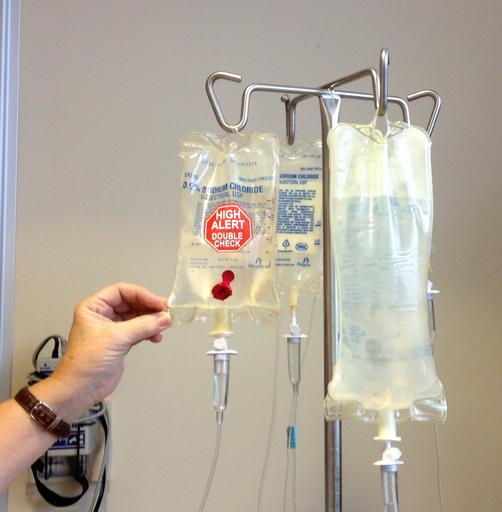Victoza Liraglutide Cancer Lawyer Helps Families File Victoza Liraglutide Pancreatic Cancer Claims Against Drug Companies by Texas Victoza Liraglutide Cancer Lawyer Jason S. Coomer
The consumer group, Public Citizen, has filed a petition with the Food and Drug Administration (FDA) requesting that the agency immediately remove the diabetes drug, Victoza, from the market. More specifically they allege that the drug puts patients at a higher risk of cancer, pancreatitis, serious allergic reactions and kidney failure that outweigh any documented clinical benefits. Public Citizen claims that the diabetes drug, Victoza, has a number of possible side effects including pancreatic cancer. This side effect is extremely dangerous, because once a person has pancreatic cancer and that cancer spreads, a patient stands just a 1.8% chance of surviving for longer than five years.
If you have used Victoza Liraglutide and have been diagnosed with pancreatic cancer, you may have a viable claim. Also, if you have lost a loved one from pancreatic cancer and they using Victoza, your family may have a viable claim. For more information, please feel free to contact Texas Victoza Liraglutide Pancreatic Cancer Lawyer Jason Coomer via e-mail, or use our online submission form.

Victoza Liraglutide Cancer Lawyer Helps Individuals and Families File Claims Against Drug Companies for Dangerous Drugs
Drug manufacturers who were aware of their diabetes drugs causing an increased risk of pancreatic cancer and other types of cancer, but hid research linking this health risk can potentially be held liable. Individuals and families are strongly encouraged to file claims against drug companies who hide the dangerous nature of a a specific drug.
Families Who Lose Family Members to Pancreatic Cancer Should Review Their Potential Claims
The loss of a spouse, child, parent, or loved one to pancreatic cancer is devastating. It is often worse to then find out that the loss of your loved one was unnecessary and could have been prevented. To prevent this devastation from being repeated by and inflicted on other families, it is important for families to have their potential claims reviewed. More specifically, families of people who died of pancreatic cancer should deterime if their loved one was given Victoza Liraglutide to treat diabetes. Further, these families should also determine if their loved one took any other type of incretin diabetes drugs. If they took these diabetes drugs and were later diagnosed with pancreatic cancer, your family may have a viable claim. Additionally, your family can help force these drug companies to take dangerous products off the market, change the warnings on these products, and/or pay compensation for wrongdoing and damages.
Overall, it is extremely important that diabetes drug manufacturers properly disclose the know potential risks and dangers of a drug. Pressure through mass tort lawsuits often forces drug manufacturers to pay large amounts of money to individuals and families for damges. This pressure also often causes changes in warning labels as well as often results in dangerous drugs being pulled from the market
Fatal Victoza Liraglutide Cancer Lawsuits Can Provide Compensation to Families Devastated by a Loss
In fatal cancer diabetes drug lawsuits, diabetes drug attorneys will work with families to seek compensation for the loss of their loved one. Though no amount of money will ever replace or bring back their loved one. The family will often need compensation to replace the lost earnings of their loved one or to pay medical expenses caused by the care needed by their lost loved one. The fatal diabetes drug lawsuit will usually seek several elements of damages for the family of the deceased including their loss of love, companionship, comfort, assistance, protection, affection and care; the loss of financial support and lost benefits from the death; and loss of inheritance from an untimely death. These fatal cancer diabetes drug lawsuits will also often include claims for what the decedent would have recovered had the person survived the cancer caused by the drug. These claims are through the decedent's estate and either go to their heirs or beneficiaries depending if the person had done any estate planning. These damages include expenses associated with the death including funeral costs, medical expenses prior to the death, and pain and suffering associated with the untimely death.
Survivors of Pancreatic Cancer Often Suffer Significant Damages Including Medical Expenses and Lost Earnings
Diabetes drug lawsuits for those lucky enough to survive pancreatic cancer or pancreas cancer will often include seeking compensation for people that have taken the drug and then suffered serious health problems including sudden inflammation of the pancreas, bleeding of the pancreas, and/or life threatening pancreatic cancer. These health problems not only can cause significant pain and suffering for the person, but can require extensive medical treatment creating huge medical expenses and preventing the person from continuing to work creating a devastating impact on the person and their family. These diabetes drug lawsuits seek compensation for these people including pain and suffering, medical expenses, physical impairment, and lost wages.
Cancer Awareness for Victoza Liraglutide
The diabetes drug, Victoza, may cause an increased risk of pancreatitis and pancreatic cancer. People using Victoza should be aware of pancreatitis and other pancreatic health issues that may lead to pancreatic cancer. Other Diabetes Drugs including Januvia, Janumet, and Byetta may also cause an increased risk of pancreatitis which can to the development of pancreatic cancer. Pancreatic Cancer is an extremely deadly form of cancer. Most people diagnosed with Pancreatic Cancer or Cancer of the Pancreas do not survive beyond the five years and many are given much less time as Pancreatic Cancer is hard to detect. Early detection is the key to surviving pancreatic cancer. For more information on these other diabetes drugs, please go to the following webpages: Byetta Pancreatic Cancer Lawsuit, Byetta Pancreas Cancer Lawsuit, and Byetta Cancer Death Lawsuit Information and Januvia Pancreatic Cancer Lawsuit, Januvia Cancer Death Lawsuit, or Januvia Pancreas Cancer Lawsuit Information.
FDA Information on Liraglutide (marketed as Victoza)
Prior to the filing of Public Citizen's petition to remove Victoza, the FDA had the below information regarding Liraglutide (marketed as Victoza) on their website:
Questions and Answers - Safety Requirements for Victoza (liraglutide)
Q1. What is FDA announcing today?
A. FDA is approving Victoza (liraglutide), a once-daily injection to treat type 2 diabetes mellitus (T2DM) in adults. Victoza is intended to help lower blood sugar (glucose) levels, along with diet and exercise. Controlling elevated blood sugar levels is important in preventing complications of diabetes, such as kidney disease and blindness.
People with T2DM have difficulty making and using insulin, a hormone that helps prevent glucose from building up in the blood. Victoza works by helping the pancreas release more insulin after eating a meal.
Although there are many anti-diabetic medications already available for use, often people with T2DM will require different or additional anti-diabetic medications to control their blood sugar, given the chronic nature of this disease.Therefore, Victoza is another medication that can be used to help control blood sugar, but it is not recommended as first-line therapy for patients whose blood sugar is not controlled through diet and exercise.
Q2. Should healthcare professionals be aware of any safety issues associated with Victoza?
A. FDA approved Victoza because the Agency believes that the benefits of this drug to patients with T2DM outweigh potential risks associated with its use. There were, however, several safety concerns identified during the Victoza review that had to be evaluated in light of its benefits. These safety concerns included:
-
Clinical trials that suggested Victoza may be associated with pancreatitis (see Q3). Other drugs that work through similar mechanisms as Victoza have also been associated with pancreatitis.
-
Animal data that showed a rare type of thyroid cancer known as medullary thyroid cancer associated with liraglutide, although the relevance of this finding to humans remains unknown (see Q5).
To ensure that the benefits of Victoza continue to outweigh any risks, FDA has required a Risk Evaluation and Mitigation Strategy (REMS) as part of the Victoza approval. This REMS includes a patient Medication Guide and a Communication Plan. FDA has also required additional studies to better understand the risks associated with this medicine. In addition, FDA has required a large cardiovascular safety trial, that is now required as part of the development of most diabetic medications (See Q7).
Q3. What information did FDA review about pancreatitis associated with the use of Victoza?
A. The Victoza trials were carefully reviewed for cases of pancreatitis, a side effect associated with other diabetic medications that work in a similar manner to this medicine. In five clinical trials including more than 3,900 people, there were seven cases of pancreatitis in patients using Victoza and one case in a patient using another diabetes medicine. This constituted a 4:1 imbalance of pancreatitis cases, when considering the number of patient exposures. Although there were too few cases to know if Victoza causes pancreatitis, healthcare professionals and patients should be aware of this potential risk, and know that some common side effects of Victoza may be similar to the symptoms of pancreatitis (see Q4).
Q4. What steps does FDA recommend patients and healthcare professionals take to reduce the risk of developing pancreatitis while using Victoza?
A. Patients taking Victoza should be aware of the symptoms of pancreatitis, such as severe abdominal pain that may also radiate into the back, possibly with nausea, and vomiting. If patients experience these symptoms, they should immediately talk to their healthcare professional.
As part of the REMS, patients will be given a Medication Guide to provide them with information about pancreatitis, including:
-
What conditions, in general, may place them at higher risk for pancreatitis; for example, prior history of pancreatitis, gallstones, excessive use of alcohol, or very high blood triglyceride levels.
-
The symptoms of pancreatitis (described above) and what they need to do if they occur.
If healthcare professionals suspect a patient has pancreatitis, Victoza should be stopped right away and the patient should undergo testing to confirm pancreatitis. If pancreatitis is confirmed, Victoza should not be restarted. Victoza has not been studied in enough patients who have had pancreatitis in the past to know if they are at higher risk for developing pancreatitis while using the medicine. For this reason, Victoza should always be used with caution in patients with a history of pancreatitis.
As part of the REMS, the Communication Plan for healthcare professionals highlights how to appropriately select patients for treatment with Victoza. It also reminds healthcare professionals to promptly evaluate patients who develop symptoms suggestive of pancreatitis.
Q5. What information did FDA review about medullary thyroid cancer and Victoza?
A. Studies were done in mice and in rats to look for any evidence that liraglutide might cause cancer in animals. Results of the studies showed that liraglutide caused malignant tumors of the thyroid gland, especially at doses that were 8-times higher than what humans would receive. It is hard to predict whether this finding means that humans who take liraglutide might be at risk for developing medullary thyroid cancer. This specific type of thyroid cancer is very rare in humans (about 600 cases per year in the United States) so even if liraglutide increased the risk for a patient to develop it, cases still might not be detected during the clinical trials.
As a result of the animal study results, the clinical development program for Victoza included blood tests for a biomarker for medullary thyroid cancer?a blood calcitonin test. Data from a two-year study did not show any difference in calcitonin levels between patients treated with Victoza compared to other diabetes medicines. With these data, FDA is of the opinion that this safety concern was adequately addressed during Victoza's development.
However, as part of FDA's commitment to post-marketing safety evaluation, the Agency is requiring the manufacturer of Victoza to conduct a 5-year epidemiological study using a large healthcare claims database to compare the development of thyroid cancer among patients with T2DM who use Victoza to those who are not using this medicine. In addition, FDA is requiring the manufacturer to develop a medullary thyroid cancer registry to monitor how many cases of medullary thyroid cancer occur each year for at least 15 years to see whether there is any association of this specific type of thyroid cancer with Victoza therapy.
Q6. What steps is FDA taking to inform patients and healthcare professionals about the potential risk of medullary thyroid cancer with the use of Victoza?
A. Patients using Victoza will receive a Medication Guide with every prescription that explains the potential risk of medullary thyroid cancer, who should not take the medication, and what symptoms to be aware of that may require additional evaluation by a healthcare professional.
A communication plan has been developed to ensure that healthcare professionals recognize the potential risk of medullary thyroid cancer in patients using Victoza. This communication plan will include:
-
A Dear Healthcare Provider letter that will be sent to all healthcare professionals likely to prescribe Victoza.
-
Representatives of Novo Nordisk (the maker of Victoza) will distribute Highlighted Information for Prescribers at their first meeting with prescribers.
-
A link on the Victoza website that will take healthcare professionals and patients to all of these documents.
FDA is also requiring the manufacturer of Victoza to conduct additional animal studies in mice to further evaluate the potential risk of medullary thyroid cancer in humans.
Q7. Are there any other studies FDA is requiring for Victoza?
A. In December 2008, FDA issued a Guidance for Industry that required manufacturers of new treatments for diabetes to carefully design and evaluate their clinical trials for cardiovascular safety. The Victoza application for approval was submitted before the December 2008 guidance was issued; therefore, the manufacturer had not designed the recommended cardiovascular safety trials. FDA, however, reviewed the available cardiovascular safety data, and determined there was no evidence of excess cardiovascular risk associated with Victoza. The April 2009 FDA Endocrinologic and Metabolic Drugs Advisory Committee met, discussed, and a majority of the members voted that the available data adequately addressed the cardiovascular safety concern to support approval.
Still, FDA is requiring a post-approval study that specifically evaluates cardiovascular safety in a higher risk population as part of the Agency's commitment to post-marketing safety evaluation.
Pancreatic Carinoma, Pancreatic Cancer, and Cancer Pancreas
Pancreatic cancer is the fourth leading cause of cancer death for both men and women and is one of the most deadly of all types of cancer. This year approximately 45,000 Americans will be diagnosed with pancreatic cancer and about 38,000 will die from it.
Unfortunately, pancreatic cancer is difficult to diagnose, and the diagnosis is often made late in the course of the disease. Early detection of pancreatic cancer is essential and will greatly improve a person's chances of surviving the disease. As such, people that have taken Byetta, especially those with symptoms of weight loss, dark urine and clay-colored stools, back pain, and jaundice, should seek advice from a qualified medical professional as to if they may have pancreatic cancer and what symptoms they should be aware of to detect any early onset of pancreatic cancer.
Acute Pancreatitis, Hemorrhagic Pancreatitis, Necrotizing Pancreatitis
Acute pancreatitis is a sudden inflammation of the pancreas that occurs over a short period of time. The pancreas is a digestive organ behind the stomach that secretes essential enzymes needed for the digestion of certain foods, including fats, carbohydrates and proteins. During an episode of acute hemorrhagic pancreatitis, several symptoms relating to digestion and abdomen may occur. In severe cases, the person may experience confusion, difficulty breathing, or respiratory failure. The person may also fall into a coma.
The severity of acute pancreatitis may range from mild abdominal discomfort to a severe, life-threatening illness. However, the majority of people with acute pancreatitis (more than 80%) recover completely after receiving the appropriate treatment. In very severe cases, acute pancreatitis can result in bleeding into the gland, serious tissue damage, infection, and cyst formation. Severe pancreatitis can also create conditions which can harm other vital organs such as the heart, lungs, and kidneys.
The warning signs of pancreatitis include: 1) Upper abdominal pain that radiates into the back. Patients may describe this as a "boring sensation" that may be aggravated by eating, especially foods high in fat. 2) Swollen and tender abdomen 3) Nausea and vomiting 4) Fever and 5) Increased heart rate.
Acute hemorrhagic pancreatitis is the sudden inflammation of the pancreas. This leads to death of pancreatic tissue and the formation of lesions, causing extensive bleeding.
Necrotizing pancreatitis is a serious health condition where a person's pancreas is inflamed and bleeding. In Necrotizing Pancreatitis patients, there is inflammation and tissue death, with the pancreas destroying itself. Whereas in Hemorrhagic Pancreatitis patients, the pancreas is bleeding. Both are serious conditions and should be treated immediately.
Victoza Liraglutide Cancer Lawyer Commonly Works With Lawyer Throughout The United States to File Victoza Liraglutide Pancreatic Cancer Claims Against Drug Companies
Texas Victoza Cancer Attorney, Jason Coomer, commonly works with other lawyers throughout the nation to rid our system of dangerous drugs. By sharing information and working together, his law firm and other firms throughout the nation are able to provide better representation for there clients. If you have lost a loved one from Pancreatic Cancer or been diagnosed with pancreas cancer; and have been using Victoza or another diabetes drug, please report the adverse action to the prescribing medical doctor as soon as possible.
Victoza Liraglutide Cancer Lawyer Helps Families File Victoza Liraglutide Pancreatic Cancer Claims Against Drug Companies
If you have lost a loved one from Pancreatic Cancer or have suffered acute pancreatitis, hemorrhagic pancreatitis, accute necrotizing pancreatitis, or pancreas cancer; and have been using Victoza or another diabetes drug, please report the adverse action to the prescribing medical doctor as soon as possible. For more Victoza Pancreatic Cancer Lawsuit, Victoza Cancer Death Lawsuit, or Diabetes Drug Pancreas Cancer Lawsuit information, please feel free to contact Texas Victoza Liraglutide Cancer Lawyer Jason Coomer a Texas lawyer, or use our online submission form.
Feel Free to Contact Us with any Questions
Associations




